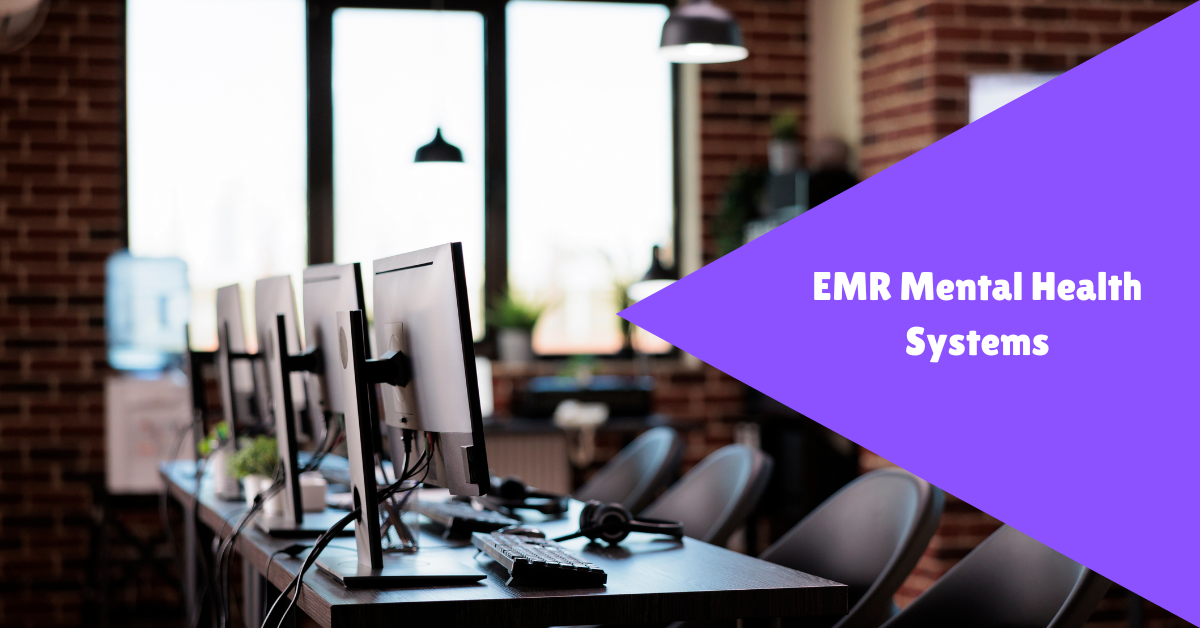As mental health awareness rises and care becomes more collaborative, providers in behavioral health are managing more than just therapy sessions—they’re balancing sensitive records, complex workflows, and strict privacy laws. Traditional EMR systems, built primarily for general medicine, often fall short in supporting these specialized needs.
That’s where EMR mental health systems come in—designed to support the unique challenges of psychiatric care, addiction treatment, counseling, and therapy practices.
Ready to take the first step?
We’ll assist you through every step.

Key Features to Look for in EMR Mental Health Systems
When evaluating mental health EMR software, here are the most essential features to consider:
1. Customizable Clinical Templates
From intake forms to SOAP notes, risk assessments, and treatment plans, the system should allow therapists and clinicians to document in ways that suit their practice.
2. Smart Scheduling Tools
Support for recurring appointments, group therapy, intensive outpatient programs (IOPs), and telehealth is a must.
3. Built-in Compliance and Security
Look for advanced access controls, encryption, audit trails, and compliance with HIPAA and 42 CFR Part 2 regulations.
4. Remote and Mobile Access
Cloud-based EMRs allow providers to securely access records and tools from anywhere, ideal for community-based or telehealth services.
5. Billing and Claims Management
Time-based billing, group session documentation, Medicaid support, and simplified claims processes are vital for behavioral health practices.
Why Mental Health Providers Need Specialized EMR Systems?
Behavioral health professionals work with highly sensitive information, multi-disciplinary teams, and unique billing methods. A one-size-fits-all EMR system simply can’t keep up. Specialized EMR mental health platforms are built to:
- Protect confidentiality in line with HIPAA and 42 CFR Part 2
- Support integrated care across therapy, psychiatry, addiction, and primary health
- Handle flexible billing structures (sliding scales, Medicaid, group sessions)
- Enable tailored workflows for assessments, treatment planning, and progress tracking
A mental health-focused EMR streamlines administrative tasks while helping clinicians stay compliant and focused on patient outcomes.
Benefits of Using an EMR Mental Health System
Choosing the right EMR mental health software can lead to:
- Better documentation with structured templates and guided notes
- Smoother collaboration among psychiatrists, therapists, case managers, and primary care providers
- Less admin work, freeing up more time for patient care
- Improved patient outcomes through data tracking and analytics
- Higher patient engagement via secure portals and virtual care options
According to HealthIT.gov, mental health-specific EMRs also make it easier to deliver coordinated care across the wider healthcare system.
Questions to Ask When Selecting EMR Mental Health Systems
Before choosing a system, consider the following:
- Does it support both therapy and clinical documentation workflows?
- Can it handle billing for IOP, MAT, group sessions, and telehealth?
- Is it fully compliant with HIPAA and 42 CFR Part 2?
- Can multiple team members securely access it with role-based permissions?
- Will it scale as your organization or services expand?
For example, systems and feature comparisons, visit platforms like ADSC’s Behavioral Health EHR page.
Final Thoughts
As the need for behavioral health services continues to grow, so does the importance of using technology built for the job. A specialized EMR mental health system can transform how providers document care, manage patient interactions, and improve outcomes.
Whether you run a solo therapy practice or a large multi-provider organization, investing in the right mental health EMR software can boost efficiency, compliance, and—most importantly—patient well-being.
FAQs
Q 1. What is an EMR for mental health?
An EMR (Electronic Medical Record) for mental health is a software system designed to store and manage patient records, session notes, assessments, and treatment plans in behavioral health settings.
Q 2. How is a mental health EMR different from general EMRs?
Unlike general EMRs, mental health systems emphasize narrative notes, therapy documentation, privacy rules, and collaboration between different providers.
Q 3. Do these systems support addiction treatment or group therapy?
Yes. Many EMRs for behavioral health support features for addiction recovery, medication-assisted treatment (MAT), and group therapy sessions.



